- লিঙ্ক পান
- X
- ইমেল
- অন্যান্য অ্যাপ
10 Surprising Things That Can Raise Your Cancer Risk ( courtecy;-reader's digest
Smoking can cause at least 15 different types of cancer. And nearly 9 out of 10 lung cancers are from puffing away on cigarettes. Burn those two facts into your head if you haven't yet quit. Then read on to learn what else affects your risk.
You don't kick the smokers out(side)
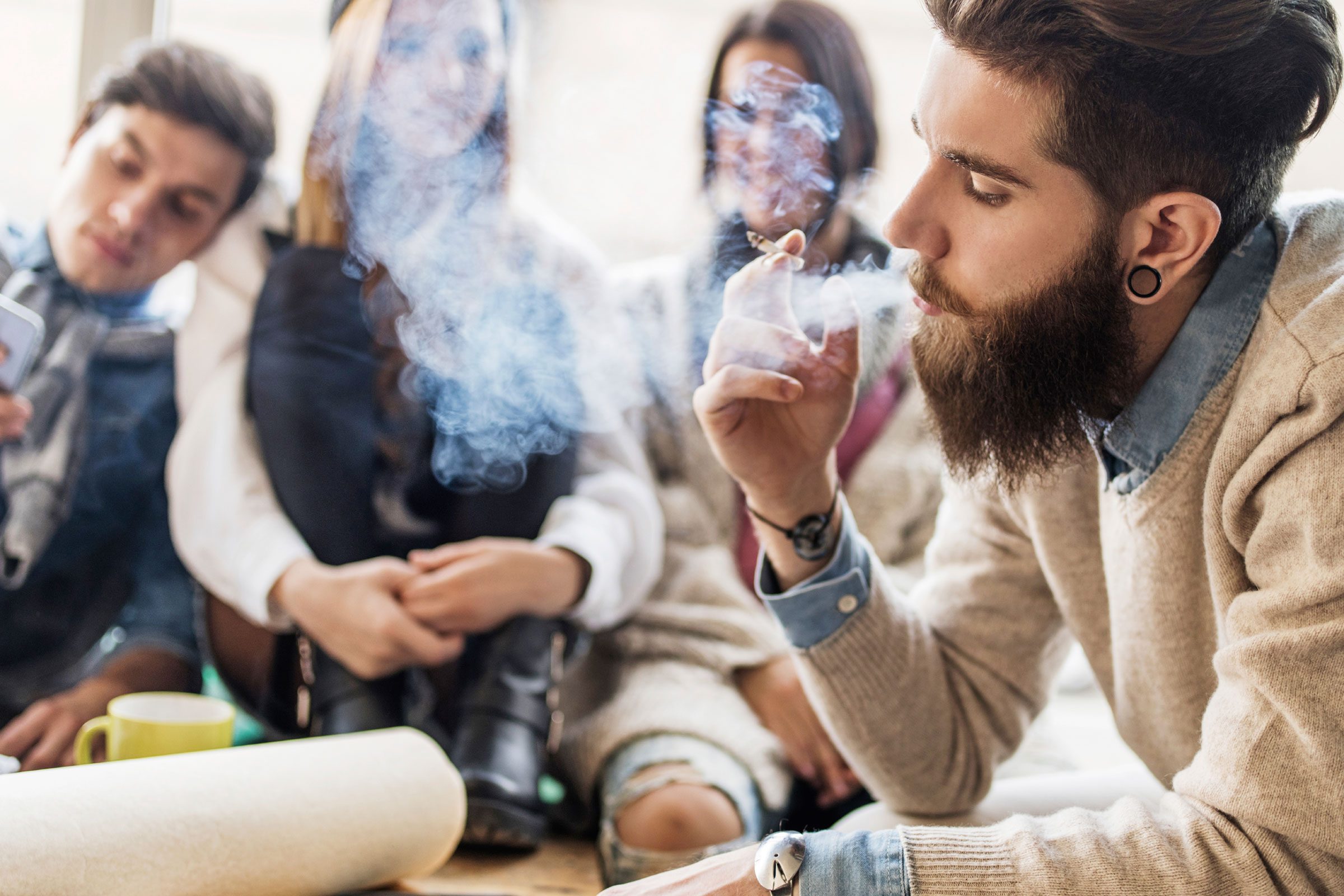 ISTOCK/BRAUNS
ISTOCK/BRAUNS
Maybe you think you're being gracious by allowing others to engage in that nasty smoking habit in your home, or perhaps you're trying to avoid an argument—whatever your reason, it’s not a good one. Smoke coming off the end of a burning cigarette releases hundreds of toxic chemicals into your house air. Of those chemicals, about 70 can cause cancer. Cigars are even worse: a large one emits about the same amount of secondhand smoke as an entire pack of cigarettes. So stop the whole host-with-the-most thing. Have the argument with your friend or grandmother or whoever, and ask the smokers to do their deed outdoors. There is no “safe amount” of secondhand smoke; even low levels can be harmful, according to government reports. Inhaling it can cause lung cancer in nonsmoking adults, and some research suggests secondhand smoke may also increase the risk of breast cancer. Encourage a loved one to stop smoking with these 23 ways to quit.
You're obese
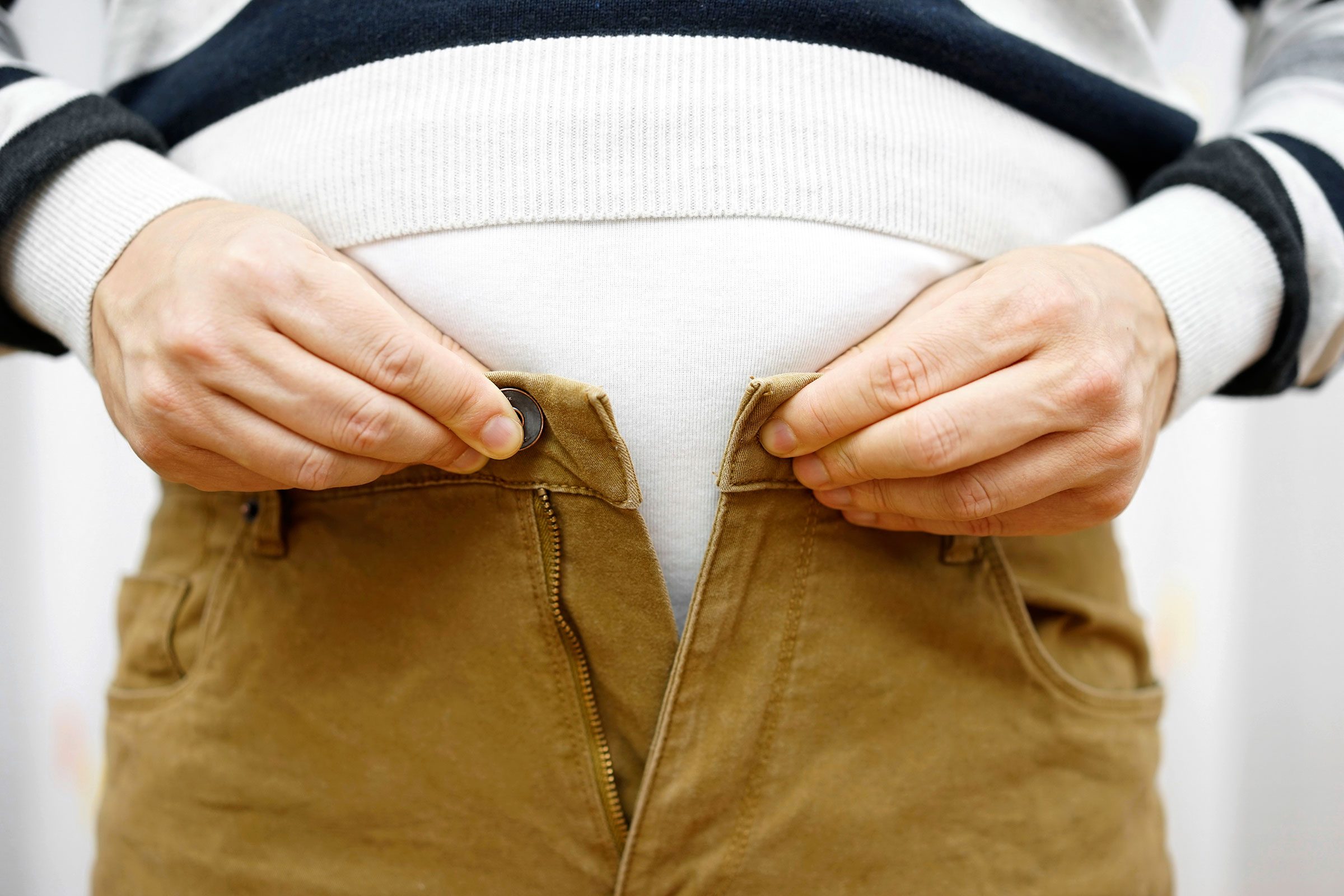 ISTOCK/BERNADASV
ISTOCK/BERNADASV
That extra fat tissue does more than make your clothes not fit: It produces excess amounts of estrogen and other hormones that may stimulate cell growth and proliferation (the more often cells divide, the more opportunities cancer has to develop). Obesity may also cause chronic inflammation, which over time can damage DNA and is one of the things that cause cancer. Obesity is associated with an increased risk of colon, breast (in women who have been through menopause), and endometrial cancer, among several others. Right now more than one-third of U.S. adults are obese; if existing trends continue, projections from the National Cancer Institute estimate by 2030, there may be as many 500,000 new cancer cases, all linked to obesity. Looking to drop a few sizes? Try one of these fast, easy tips for losing weight.
You skimp on sunscreen
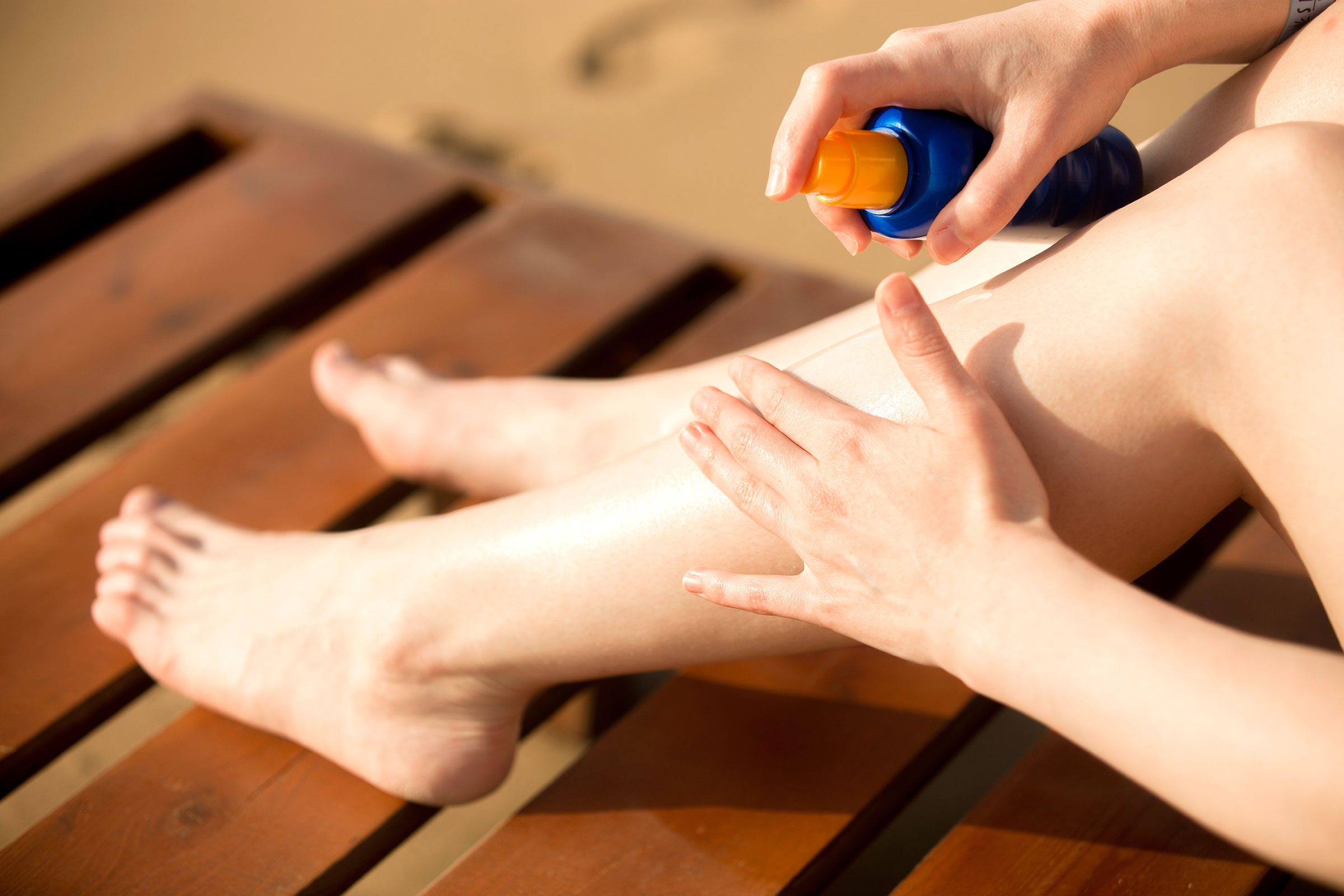 ISTOCK/FIZKES
ISTOCK/FIZKES
The fact that you are using sunscreen at all is, of course, a good thing. Sunscreen can help prevent skin cancer and, for the vain in us, premature aging. You even buy the right kind: broad-spectrum, SPF 30 or higher, water resistant. But if you don't slather on enough, you're shortchanging your skin on sun protection. Most adults need at least one ounce of sunscreen to cover the exposed spots (which includes the tips of your ears, and the backs of your hands, neck, and feet if you're in flip-flops; that's a shot-glass full, or about how much you can hold in the palm of your hand. Studies show most of us squirt and rub only a quarter to, at most, half of that amount. For the full benefit, apply sunscreen about 15 to 30 minutes before heading outdoors so the ingredients can fully bind to your skin, and reapply the same 1-ounce amount every two hours, or immediately after swimming or sweating. Oh, and when it's overcast, you still need sunscreen: That's because up to 40 percent of the sun's ultraviolet radiation still reaches the earth on a completely cloudy day. Derms hate these sunscreen myths.
You just turned 65
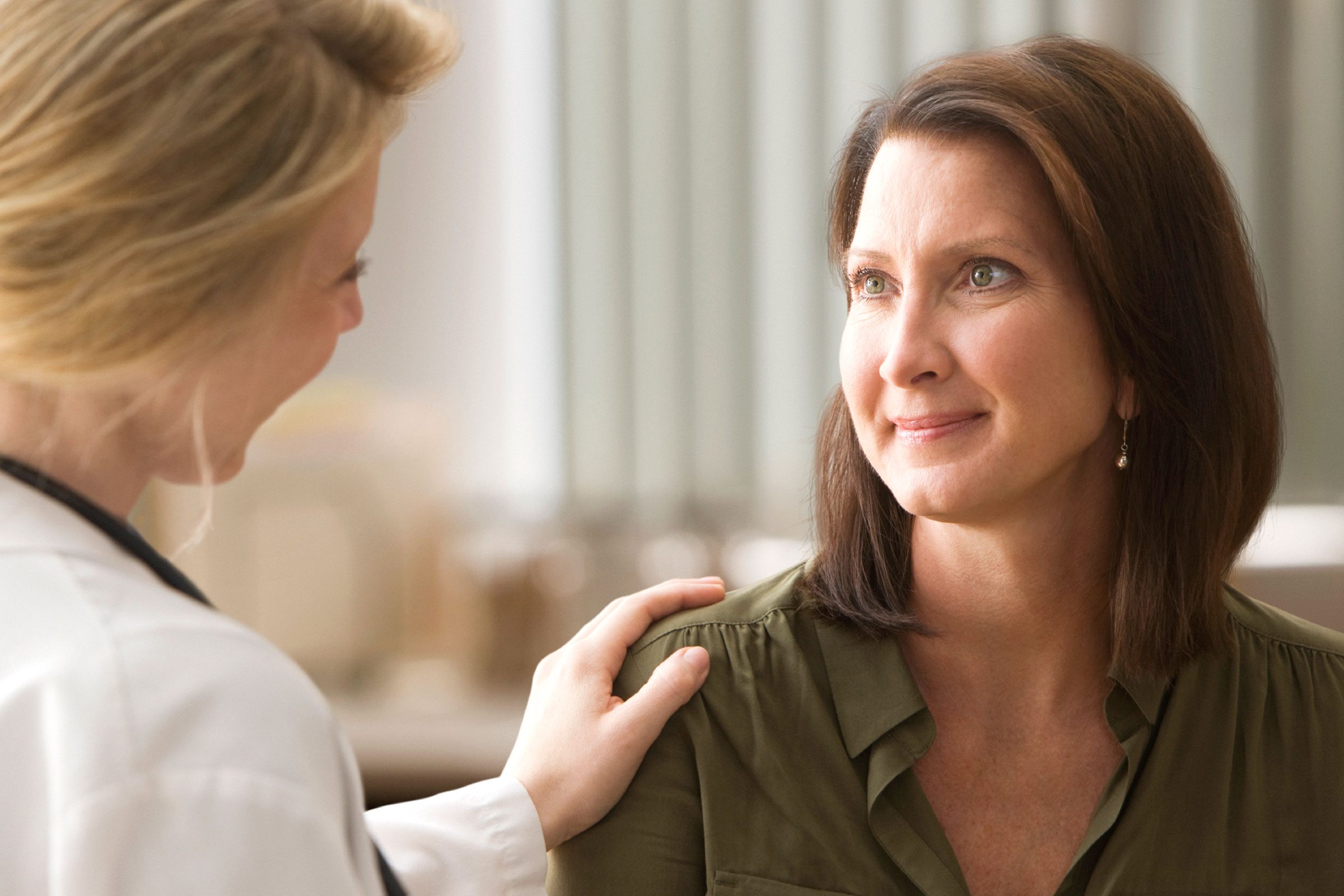 ISTOCK/SELECTSTOCK
ISTOCK/SELECTSTOCK
One quarter of new cancer cases are diagnosed in people between age 65 and 74, according to the National Cancer Institute. In other news, having longer legs is associated with a 42 percent higher risk of developing colorectal cancer, says a new preliminary study. Here are other bizarre ways your height affects your health. File both of these under the "out-of-my-hands" category of things that cause cancer, and then focus on the risk factors you can control, like what you choose to eat. While no one food or nutrient can protect against cancer by itself, strong evidence shows a diet filled with a variety of plant foods such as vegetables, fruits, whole grains, and beans helps lower risk for many cancers, according to the American Institute for Cancer Research. Check out these 30 cancer-fighting foods. And that holds true no matter how old or tall you are.
You sit too much
 ISTOCK/GEORGIJEVIC
ISTOCK/GEORGIJEVIC
One of the things that cause cancer? Keep your rear firmly planted on the couch while watching TV or in your chair at work, and you could be at higher risk for developing certain types of cancer, according to scientists in Germany. They analyzed 43 observational studies, which included more than 4 million people and almost 70,000 cancer cases, and found an additional two hours a day of sedentary behavior was linked to an 8 percent increase in colon cancer risk, a 10 percent increase in endometrial cancer risk, and a 6 percent increase in risk for lung cancer, even among people who were otherwise physically active. In another study, researchers from the American Cancer Society found women who spend their leisure time sitting are at a higher risk of developing myeloma, breast, and ovarian cancer. Here's the best desk exercise for sitting at your desk all day.
You also don't walk enough
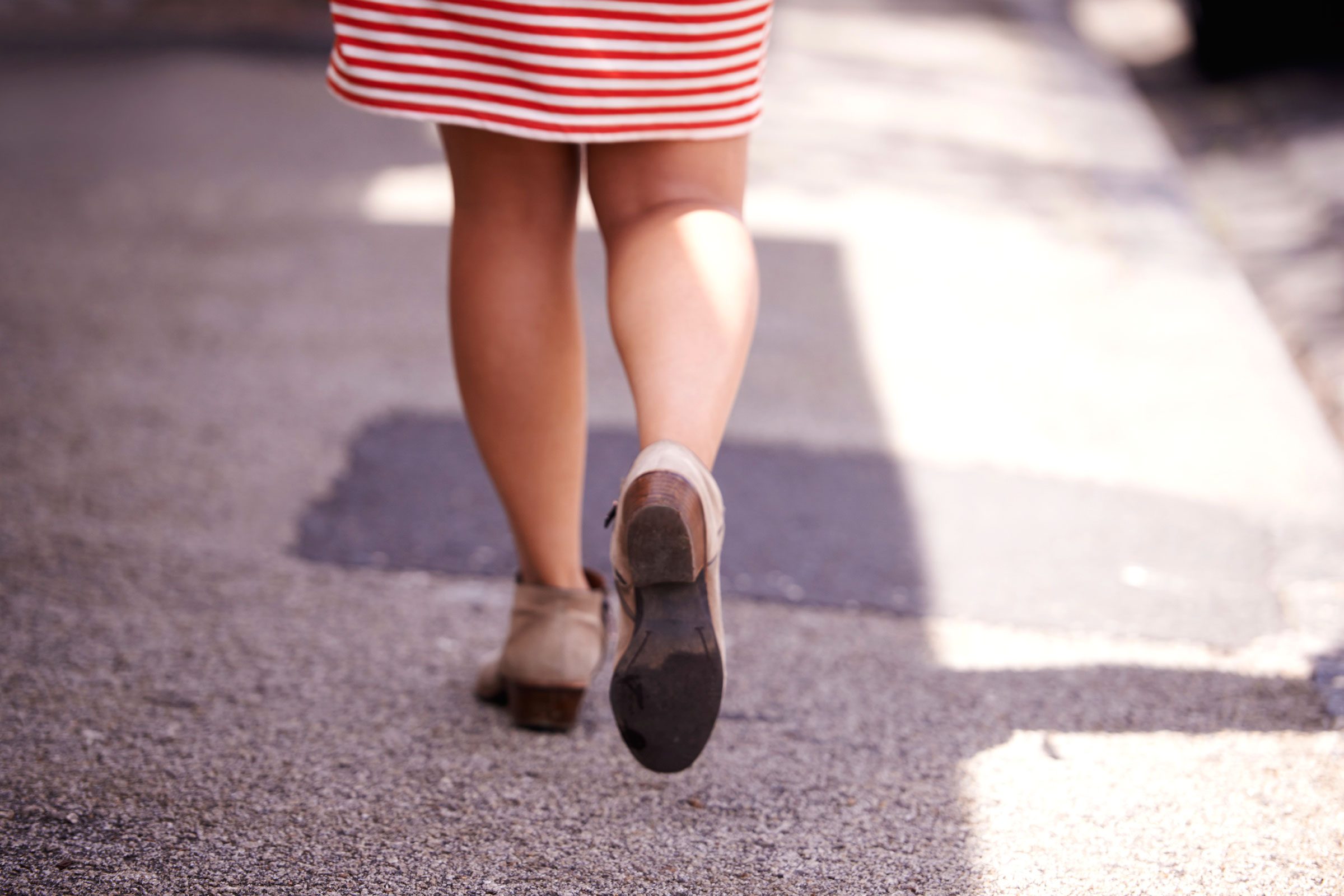 ISTOCK/MAPODILE
ISTOCK/MAPODILE
It's probably the least complicated form of exercise, and you don't even have to do it that much: aim for at least 30 minutes at a moderate pace, five or more days a week. Break up the recommended 30 into 10, 10, and 10, if that's more manageable. Research has consistently shown that adults who increase their physical activity (either in intensity, duration, or frequency) can reduce their risk of developing colon cancer by up to 40 percent, compared to those who are sedentary. Gently pounding the pavement may also impact breast cancer risk. A study that examined the exercise habits of more than 73,600 postmenopausal women over almost two decades found that the ladies who walked at a leisurely three miles per hour pace for about one hour a day had a 14 percent reduced risk than those who walked less than three hours per week. The most active women, who did some heavy sweating for up to 10 hours each week, had a 25 percent lower risk of developing breast cancer than women who exercised the least. Here are some more great benefits of taking more walks.
You always sleep with the TV on
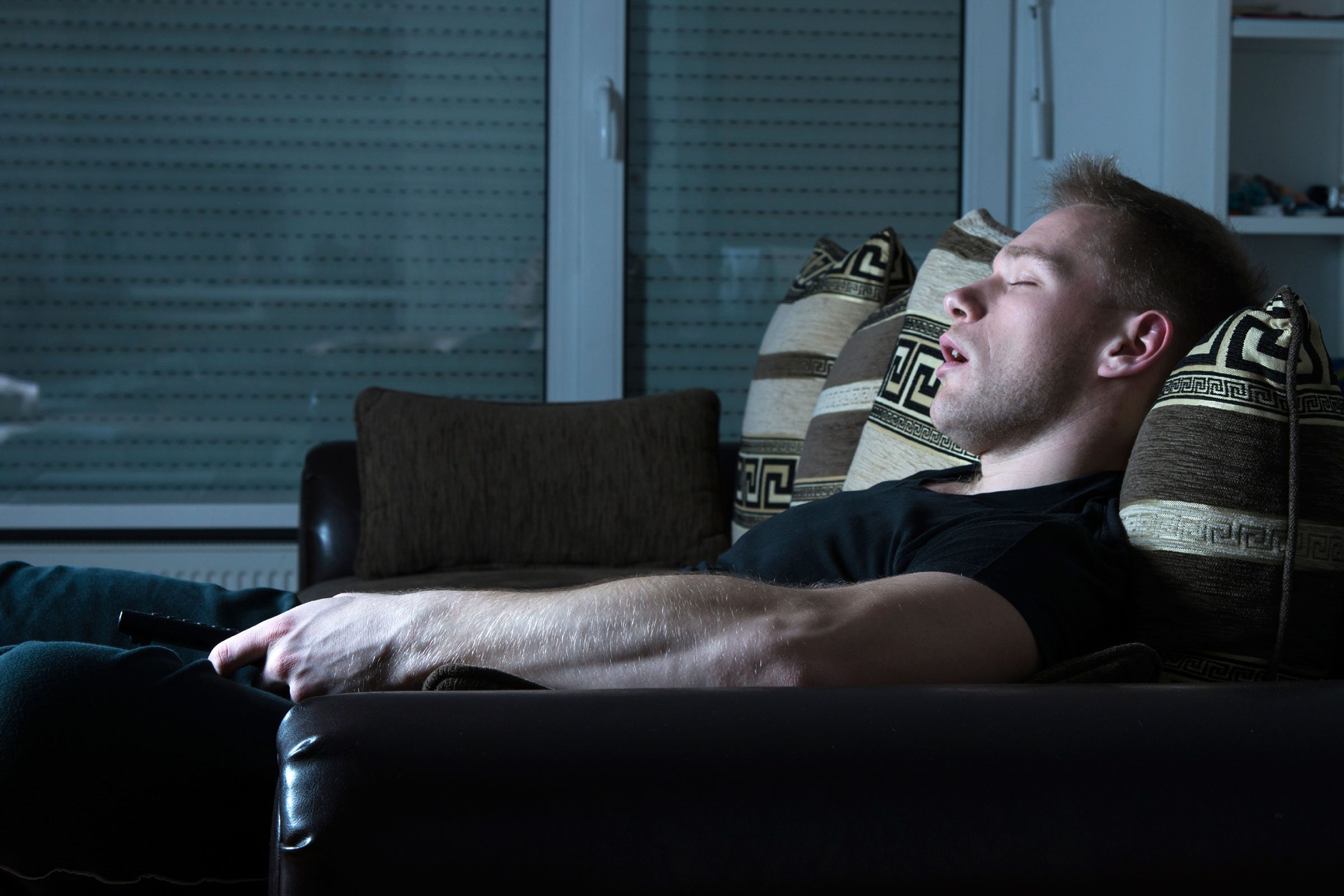 ISTOCK/AZMANL
ISTOCK/AZMANL
This cancer risk factor isn't as well-studied as, say, smoking or excessive sun exposure, but it's still worth mentioning. Studies suggest that exposing our bodies to artificial light at night increases risk for certain cancers, such as breast and prostate (which require hormones to grow), according to a paper in the journal Environmental Health Perspectives. There is some evidence that women who work night shifts have shown slightly higher rates of breast cancer, whereas blind women have shown decreased risks. And a study of 164 countries indicated those with higher overall levels of artificial light at night were associated with higher incidences of breast cancer. One possible explanation is exposure to artificial light at night suppresses the production of melatonin, a hormone that helps control the sleep cycle, and works as a powerful antioxidant. Some research suggests lower levels of melatonin are linked to a higher risk of breast cancer. Though more research is needed to determine the exact mechanisms in play and how light at night contributes to cancer risk, you should still take steps to avoid unnecessary exposure. Read a paperback instead of a tablet, keep your laptop out of the bedroom, and set a timer on your TV so it turns off.
You never say no to another cocktail
 ISTOCK/GERENME
ISTOCK/GERENME
Yep, alcohol is one of the things that cause cancer. One for women, two for men: that's the recommended daily limit if you choose to drink alcohol, both from the federal government and the American Cancer Society. And really, you should stop there, because the simple fact is the more alcohol you consume, the higher your risk of developing certain cancers: specifically that of the head and neck, esophagus, liver, and breast. And a new report released by the American Institute for Cancer Research and the World Cancer Research Fund suggests three or more alcoholic drinks per day every day increase the risk of stomach cancer. If you need a refresher: One drink equals 12 ounces of beer, 5 ounces of wine, or 1.5 ounces of distilled spirits.
You like your steak well-done
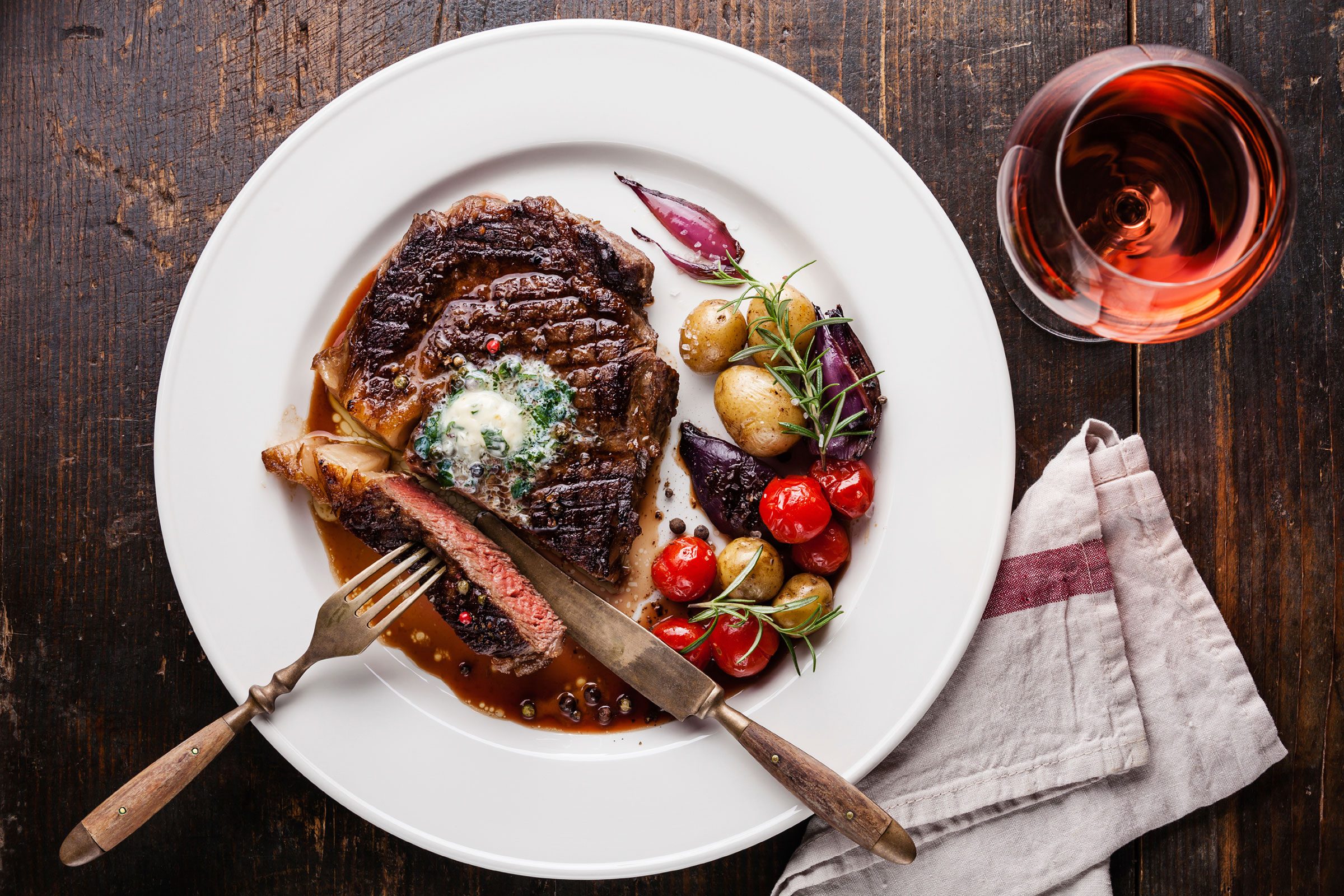 ISTOCK/LISOVSKAYA
ISTOCK/LISOVSKAYA
And you love a little char on your chicken. But grilling or frying meats at the high temperatures you need to get to that "doneness" creates HCAs (heterocyclic amines) and PAHs (polycyclic aromatic hydrocarbons), chemicals that have been shown to cause changes in DNA that may increase cancer risk. In animal studies, exposure to HCAs, formed in meats cooked 300°F and hotter, lead to the development of tumors in the breast, colon, prostate, and other organs. PAHs are formed when fat and juices from meat drips onto an open fire or hot coals, causing flames and smoke that settles on the food; rodents fed high levels of this compound developed cancer as well. Though researchers haven't established a definitive link between HCA and PAH exposure from cooked meats and cancer in humans, epidemiological studies have shown that regularly consuming well-done, fried, or barbecued meats was associated with increased risks of colorectal, pancreatic, and prostate cancer. Here's how you can cut your cancer risk when you grill.
Your mom got cancer young
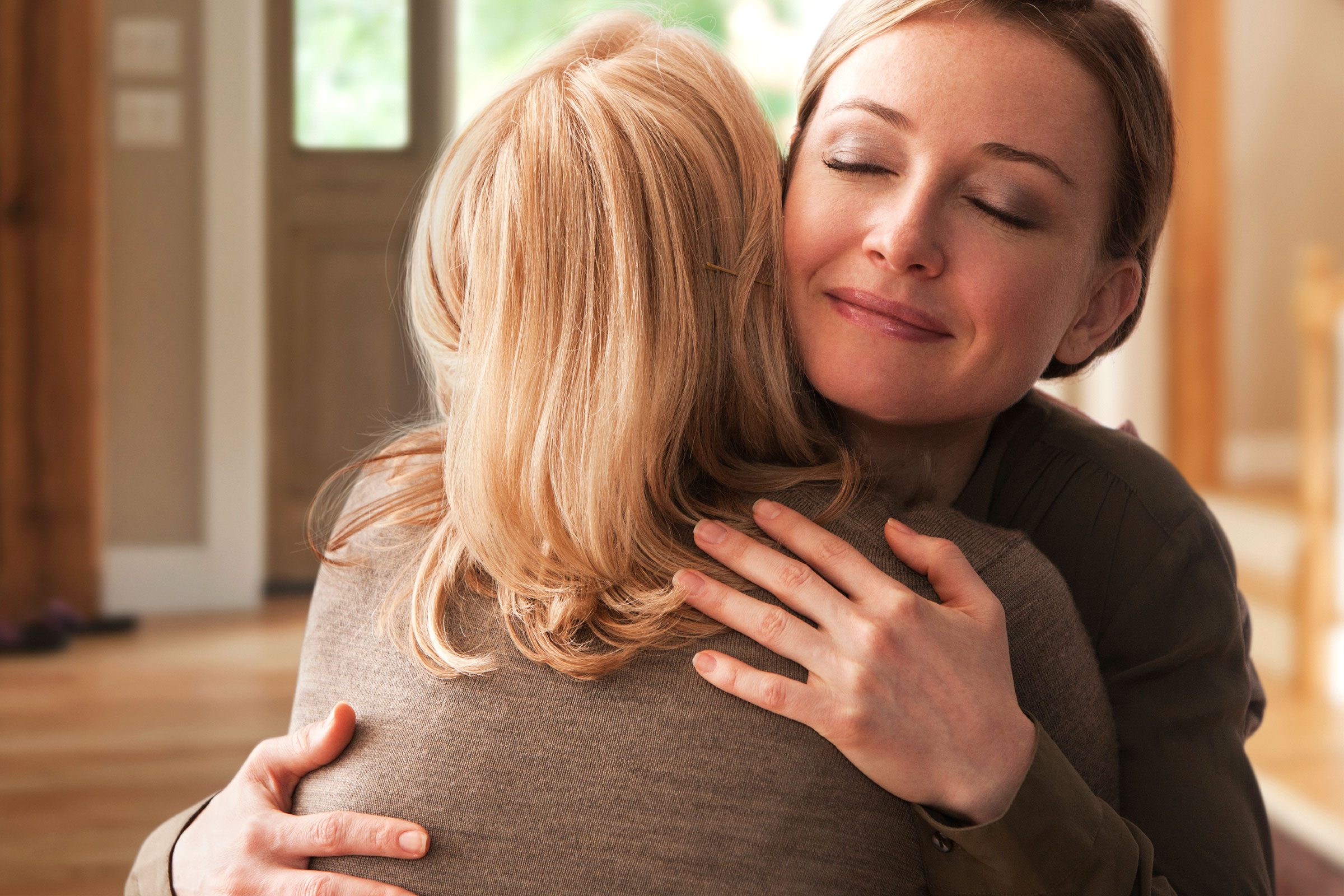 ISTOCK/SELECTSTOCK
ISTOCK/SELECTSTOCK
If your mother, father, or siblings were diagnosed at a younger-than-usual age (such as colon cancer before age 45), that's a sign that it may be caused by an abnormal gene that you may have inherited. What you should know, though, is that even if a cancer-predisposing gene mutation is in a family, it doesn't necessarily mean that everyone who has it will develop cancer. Overall, inherited mutations result in only about 5 to 10 percent of all cancers. Other signs that suggest the presence of a hereditary cancer include: multiple cases of an uncommon or rare type of cancer (like kidney cancer), more than one type of cancer in a single person (a woman with both breast and ovarian cancer) or cancer occurring in both of a pair of organs (both kidneys or both breasts). If you have a strong family history of cancer, you might be a candidate for genetic testing to see whether you have inherited mutations that might increase your risk of certain cancers.
- লিঙ্ক পান
- X
- ইমেল
- অন্যান্য অ্যাপ
মন্তব্যসমূহ
একটি মন্তব্য পোস্ট করুন